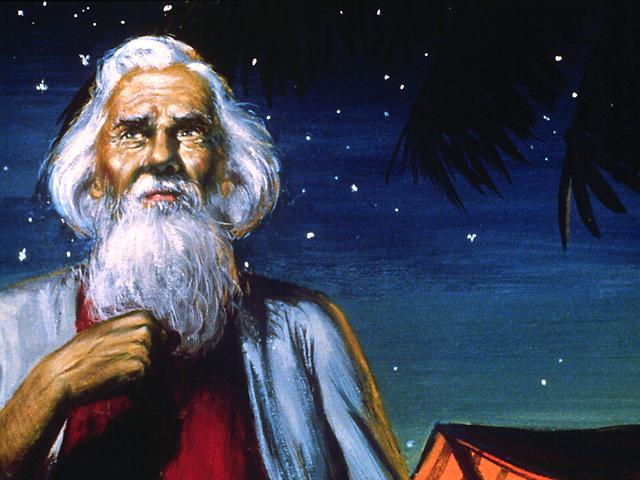Unto Us a Child is Born
And his name shall be called Wonderful Counselor, Almighty God, Everlasting Father, the Prince of Peace
It's that time of year again: we remember the birth of Jesus of Nazareth - also called the Prince of Peace, the Son of Righteousness, the Anointed One.
It's the perfect time for those of us who seek to follow him to ask ourselves how that's going for us.
The answer may surprise you.
Evidently we live in one of the most peaceful times in world history since Jesus was born. Seriously- and that's including two World Wars, Stalin's Russia and Mao's China. And now's not a bad time to take a look at the broad view.
Noted Linguist Steven Pinker, chronicles the decline in world violence in this fascinating video:
Given the horrible violence in our own society in just the past year, we may wonder about this. Particularly we might seem curious as to why some countries are doing better than others. Part of the answer might lie in the chart below:
What's interesting to note here is that the United States- a Christian nation - is having the most difficulty, while Japan - where less than 1 percent of the population is Christian- is doing the best. Hmmm...
My Soul Magnifies the Lord
Singing along with Mary
Mary starts the seasons' music. How's our harmony as the season goes along?
My soul magnifies the Lord
And my spirit rejoices in God my Savior;
Because he has regarded the lowliness of his handmaid;
For behold, henceforth all generations shall call me blessed;
Becuase he who is mighty has done great things for me,
and holy is his name;
And his mercy is from generation to generation
on those who fear him.
He has shown might with his arm.
he has scattered the proud in the conceit of their heart.
He has put done the mighty form their thrones,
and has exalted the lowly.
he has filled the hungry with good things,
and the rich he has sent empty away.
Have you ever noticed which part of the Magnificat our beautiful Christmas carols, anthems and songs reflect? The beginning is certainly well reflected- but what of the later part?
The latter part seems to foreshadow Jesus' own sense of why he was born, which he proclaimed in the synagogue in Nazareth:
God's spirit is upon me;
he's chosen me to preach the Message of good news to the poor,
Sent me to announce pardon to prisoners
and recovery of sight to the blind.
To set the burdened and battered free,
to announce, 'This is God's year to act!"
Luke 4:18-19 The Message
Away in Manger No Crib for a Bed
Taking the Christmas story literally.
Pope Benedict recently took it upon himself to point out that the Christmas story as we currently remember it is quite embellished For instance, he relates, there are no animals recorded in the Bible (To which Stephen Colbert retorted: "You know what else isn't in the Bible- the Pope!" If you didn't know Stephen was RC, you'd think he was a Lutheran!)
What if we did take the Christmas story literally- before the embellishments? What if we read it as the first hearers would have: as a political protest against the religious and governmental powers who were not doing justice, loving mercy and walking in the way God had called them too?
Instead, they were oppressing the poor and putting burdens on them that they were unable to carry- as Jesus would later call them out on. So Rome and Jerusalem were by-passed when God sent the Messiah. Instead, Jesus was born to the poor and powerless-in the little town of Bethlehem (re-designated "The city of David" as that was actually Jerusalem, if you will recall)- that's what these stories literally tell us.
That should probably be a prominent theme in our singing, no?
Ye Who Now Will Bless the Poor...
In Good King Wenceslas' footsteps
What if it is literally true that Jesus came to bring good news to the actual poor - not necessarily the poor in spirit, as we in our affluence would prefer to hear it.
What if he came to pardon actual prisoners- not necessarily just those of us held captive by compulsions, addictions and bad habits?
This last question about prisoners hits incredibly close to home, as in the last 40 years the US prison population has increased dramatically until we now have incarcerated 25% of the worlds prisoners- even though we only have 6% of the population. The reality, too, is that this these are not violent crime offenders- which have steadily been dropping during this same period- but disproportionately minorities arrested in the war on drugs.
Bryan Stevenson - Executive Director of the Equal Justice Initiative, and recent recipient of the Smithsonian American Ingenuity Award, makes the case that this is the new Jim Crow- the new slavery. He reports, that 1 out of every 3 black men between the ages of 18 and 32 are either incarcerated, on probation or have a criminal record. (How does our voice sound when protesting other countries human rights violations with this board in our own eye?)
Is it really possible that we could make racial discrimination illegal, and then turn around and use the same legal system to remove racial minorities from the larger culture?
This is a stark realization for me as I have a young man I am close to who will be home for Christmas this year, but most likely would be in jail if he had been black- instead of white, with a dad who could afford to hire him a good lawyer, and professional relatives who could lobby the judge on his behalf. This is a bitter-sweet realization, where the happiness I feel for him and his family is damped by the reality that others are behind bars because of the color of their skin and their economic status.
The bigger picture is here::
It's Beginning to Look A Lot Like Christmas
And what do our celebrations look like?
Much of our celebration impulses are actually probably older than Jesus (but not Methuselah!)
We will -as indigenous peoples and our ancestors have done for millennium - pull our families and friends closer, tell story's that give us hope and encouragement have potlatches and feasts, and entertain ourselves to make us laugh, smile and enjoy each other's company. There is a compelling need to fill our lives with beauty, light and warmth, as the days grow colder, darker and shorter - especially those of us in the Great White North.
The power of this impulse is especially felt when someone (or you yourself) does not make it home for Christmas. This year our daughter will not be home for the holidays for the first time (interestingly, she will be in Rome seeing the Pope!) And Bing Crosby not withstanding, dreaming about her being home just doesn't cut it (Skype is much better!)
He is Born, the Divine Christ Child
We celebrate a possibility
And we sing of salvation:
Be near me Lord Jesus
I ask you to stay
close by me forever
and love me I pray.
Bless all the dear children
in Thy tender care,
And fit us for heaven
to live with Thee there.
What kind of salvation are we singing of- and for whom?
We pray every Sunday- "Thy kingdom come, thy will be done, ON EARTH as it is in heaven."
Is this salvation for the poor? The prisoners?
Or do they have to wait until heaven to experience what you and I get to live every day?
Of course, we give to the poor - we provide charity- and probably more so at this time of year.
But as Lutheran Preacher David Lose points out (quoting the song by Jackson Browne):
(Click to see his blog post on this)
And I would add: why there are so many people in our jails.
If we are followers of Jesus, is it enough to simply provide short-term relief and not also work to change the dynamics that creates the problem?
Which Shall Be to ALL People
Good tidings, great joy, salvation!
So with our emotional bank accounts full of holiday cheer, good will and energy that we accumulate during this season, can we sing particularly:
Surely he taught us to love on another,
His law is love and his gospel is peace.
Chains will he break for the slave is our brother.
And in his name all oppression shall cease.
Will we then- in his name- be a part of ending the oppression?
O Come, All Ye Faithful...
God’s Spirit is on YOU;
He's chosen YOU to preach the Message of good news to the poor,
Sent you to announce pardon to prisoners
and recovery of sight to the blind,
To set the burdened and battered free.
To announce "2013 is God's year to act!"














































